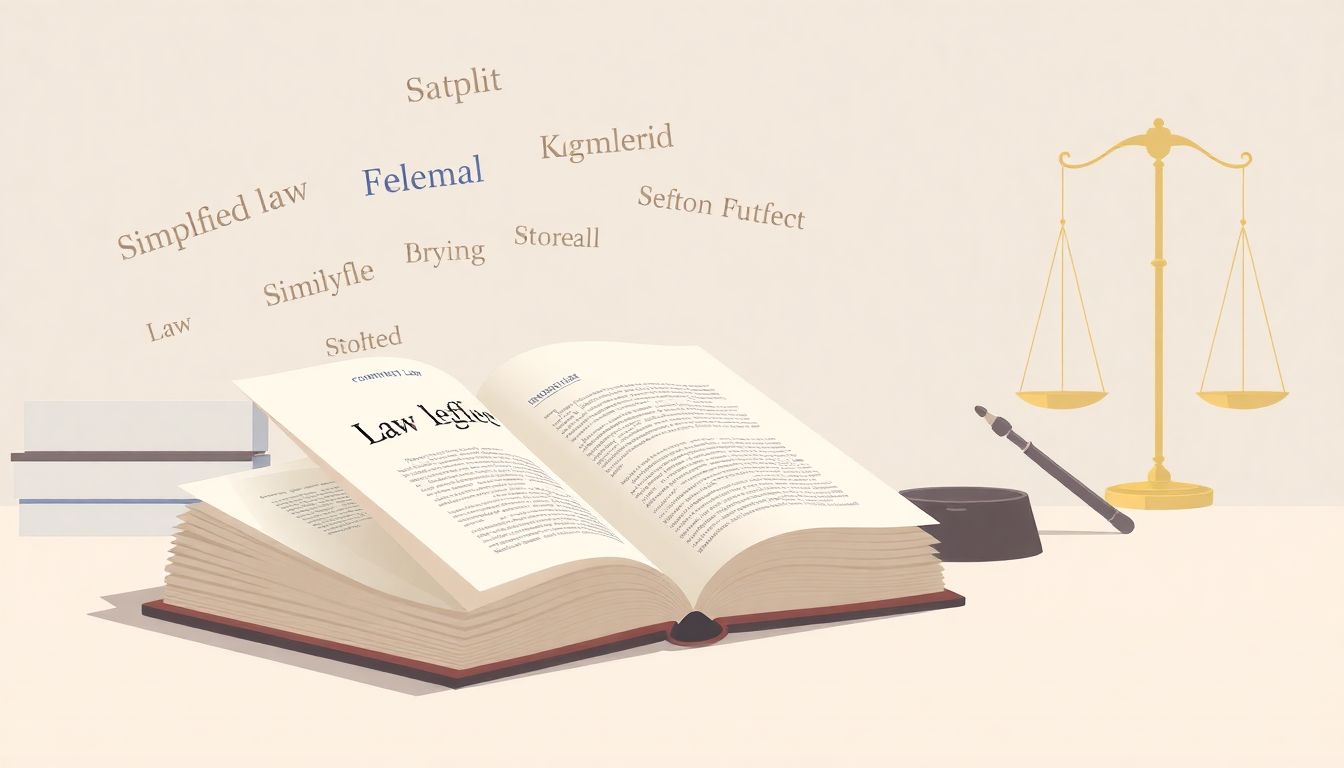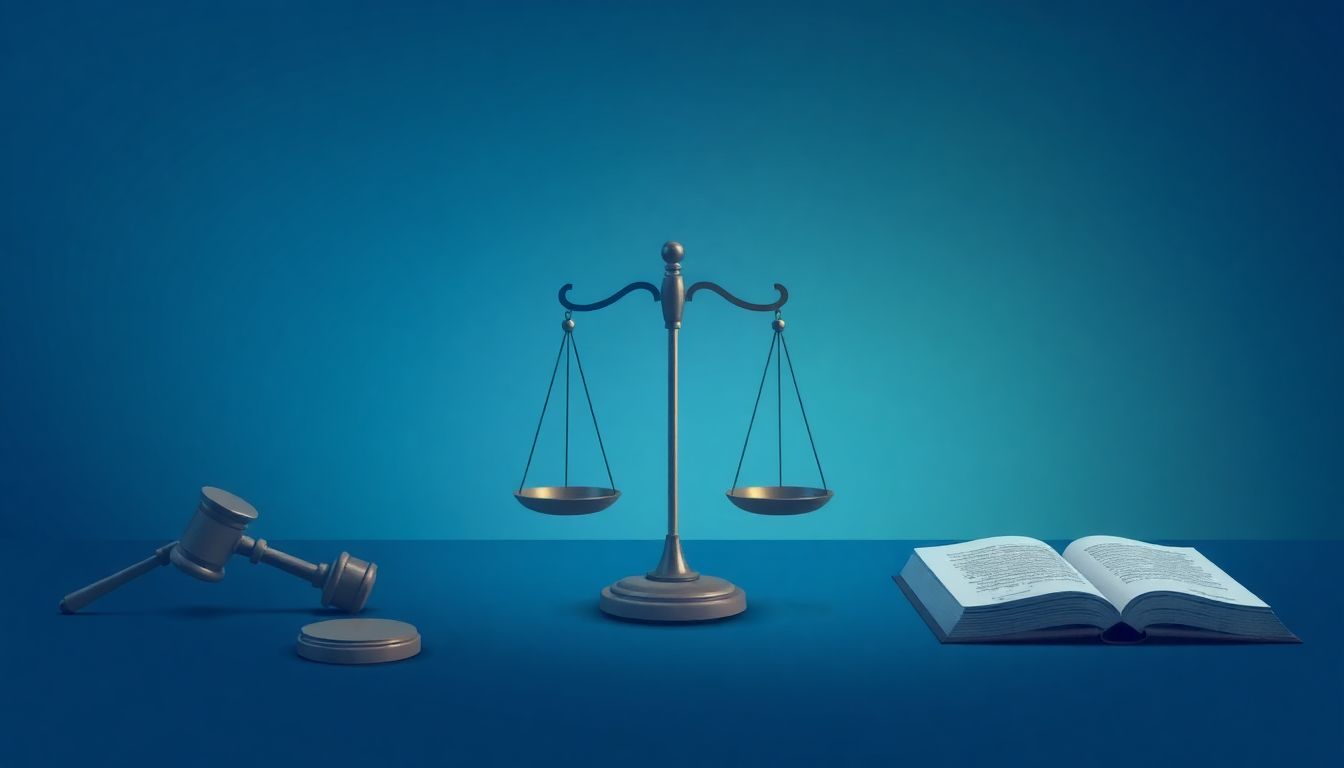Navigating the complexities of criminal law can be a real headache. Whether you’re a student, a legal professional, or just someone wanting to understand your rights, it’s easy to feel overwhelmed by all the jargon and nuances. You’re definitely not alone in this struggle!
But don’t worry—if you stick around, I’ll share some super effective prompts designed for ChatGPT. These will help simplify your research and enhance your learning experience, making criminal law much more accessible and less intimidating.
From case analysis to document drafting and exam prep, we’ll cover a range of topics tailored to boost your understanding and efficiency. Let’s dive in and take the mystery out of criminal law together!
Key Takeaways
- Use effective ChatGPT prompts to simplify criminal law research and case analysis.
- Start with clear questions related to specific concepts or cases to enhance understanding.
- Incorporate prompts for drafting legal documents to save time and improve quality.
- Utilize targeted prompts for exam prep to focus on key areas and reinforce knowledge.
- Leverage commonly asked questions in criminal law to facilitate discussion and better comprehension.

Effective ChatGPT Prompts for Criminal Law Research
Using ChatGPT for criminal law research can significantly streamline your inquiries and enhance your understanding of complex legal topics.
Effective prompts can help you focus on specific areas of criminal law, retrieve information quickly, and even suggest related concepts.
Here are some useful prompts to get you started:
- “Provide an overview of key concepts in criminal law.”
- “What are the main differences between felonies and misdemeanors?”
- “List significant Supreme Court cases that have shaped criminal law.”
- “Explain the concept of double jeopardy in simple terms.”
- “What are the general elements required to prove a crime?”
How to Use ChatGPT for Understanding Criminal Law Concepts
Understanding essential criminal law concepts can be daunting, but ChatGPT can simplify the process.
Start by posing clear and specific questions to clarify your doubts.
Here are actionable steps to guide your use of ChatGPT:
- Identify the specific concept you want to understand, like “burden of proof.”
- Use prompts such as “Define ‘burden of proof’ in criminal law.”
- Request examples: “Provide an example of how burden of proof applies in a criminal trial.”
- Ask for comparisons, e.g., “How does the burden of proof in criminal cases differ from civil cases?”
- Explore practical applications: “How is the burden of proof handled in a DUI case?”
Prompts for Criminal Law Case Analysis
Analyzing criminal cases is vital for law students and professionals alike, and ChatGPT can assist you with that.
Start by focusing on the structure of the case and the legal principles involved.
Here’s a set of prompts to guide your analysis:
- “Analyze the impact of the ruling in [insert case name] on criminal law.”
- “Summarize the key facts, issues, and rulings in the case of [insert case name].”
- “What were the legal precedents considered in [insert case name]?”
- “Discuss the dissenting opinions in [insert case name] and their significance.”
- “Assess how the ruling in [insert case name] affects current criminal law practices.”
Using ChatGPT to Draft Criminal Law Documents
Drafting legal documents can be challenging, but ChatGPT can provide valuable assistance in this area.
Whether you need to write a motion, brief, or other legal documents, utilizing AI can save you time and effort.
Here are some prompts to consider:
- “Draft a template for a criminal defense motion.”
- “Create an outline for a legal brief in a theft case.”
- “Write a summary of the facts for a criminal law case report.”
- “Provide guidance on structuring a plea agreement.”
- “List the essential elements to include in a criminal law memo.”
For more insights on using prompts in various contexts, check out our posts on prompts for college essays and ChatGPT for legal services.

Prompts for Exam Preparation in Criminal Law
Studying for a criminal law exam can be overwhelming, but using ChatGPT can help clarify topics and reinforce your understanding.
Creating targeted prompts will allow you to focus on the areas that need the most attention.
Here are some effective prompts for exam preparation:
- “List key principles of criminal liability.”
- “Explain the differences between intent, knowledge, and negligence.”
- “Provide examples of defenses to criminal charges.”
- “Summarize the elements of a murder charge.”
- “What are the implications of self-defense in criminal trials?”
- “Draft a study guide for the major defenses in criminal law.”
Using these prompts can help solidify your understanding and prepare you for any surprises on exam day.
Commonly Asked Questions in Criminal Law and Suggested Prompts
Many criminal law students have similar questions, and ChatGPT can help answer these effectively.
By using specific prompts, you can gain insights into frequently asked legal questions.
Here’s a list of common questions along with suggested prompts:
- “What constitutes a crime in criminal law?”
- “How do the concepts of mens rea and actus reus work together?”
- “What are the stages of a criminal trial?”
- “Discuss the importance of eyewitness testimony in trials.”
- “Explain how plea bargaining affects the justice system.”
- “What rights do defendants have during criminal proceedings?”
These prompts enable better comprehension of criminal law and can be great discussion points with peers or study groups.

Practical Scenarios for ChatGPT Prompts in Criminal Law
Applying criminal law knowledge to real-world situations can deepen your understanding and prepare you for practical challenges.
ChatGPT can help simulate various legal scenarios that require critical thinking and legal reasoning.
Here are some prompts to consider for practical application:
- “Describe how you would handle a case involving a suspected drug dealer.”
- “What steps would you take if you were a defense attorney representing someone charged with robbery?”
- “Analyze a scenario where a defendant claims self-defense after a physical altercation.”
- “Discuss potential legal defenses in a case involving domestic violence allegations.”
- “Evaluate the implications of a prosecutor’s decision to drop charges in a theft case.”
Tips for Crafting Custom Prompts in Criminal Law
Creating effective custom prompts for ChatGPT enhances the specificity and relevance of the responses you receive.
Here are some practical tips to help you craft stronger prompts:
- Be specific—include the context of the legal issue you are addressing.
- Use clear language to avoid ambiguity in your question.
- Incorporate relevant keywords related to the legal principle or case you are interested in.
- Ask follow-up questions for deeper insights, like “What are the historical implications of this ruling?”
- Utilize hypothetical scenarios to explore practical applications, such as “What would happen if a person was charged under these circumstances?”
Examples of Successful Prompts for Criminal Law Discussions
Engaging in discussions about criminal law can be enriching, and using the right prompts can stimulate thoughtful dialogue.
Here are examples of prompts that have led to successful conversations:
- “Discuss the ethical implications of plea bargaining in criminal cases.”
- “What role does public opinion play in high-profile criminal trials?”
- “Examine the impact of media coverage on jury selection and trial outcomes.”
- “What are the potential consequences of wrongful convictions on the justice system?”
- “Debate the effectiveness of rehabilitation versus punishment in criminal justice.”
FAQs
Effective prompts include specific questions about statutes, case laws, and evidence requirements. For instance, ask about the implications of certain laws or request summaries of landmark cases to enhance understanding.
ChatGPT can help draft complaint forms, motions, and legal briefs by providing templates and outlining key legal points. Specify the type of document and relevant jurisdiction for tailored assistance.
Use prompts that focus on hypothetical scenarios, key case law, and legal principles. For example, “Explain the elements of burglary” or “Discuss defenses in assault cases” to gauge understanding.
Be specific and concise in your prompts. Include relevant legal concepts, case names, or jurisdictions. Tailor your query to the particular aspects of criminal law you wish to explore further.
